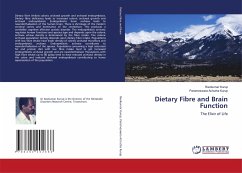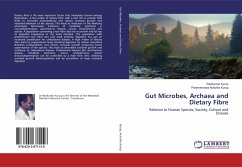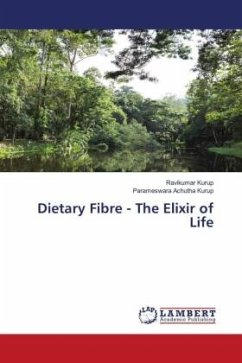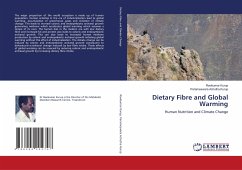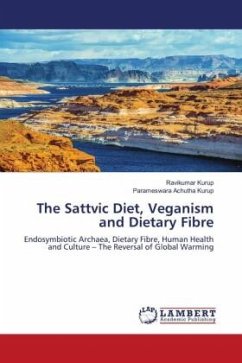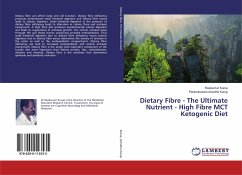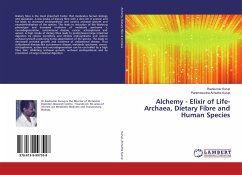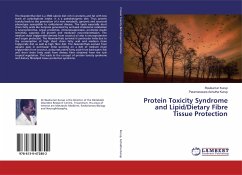Dietary fibre inhibits colonic archaeal growth and archaeal endosymbiosis. Dietary fibre deficiency leads to increased colonic archaeal growth and archaeal endosymbiosis. Endosymbiotic brain archaea leads to neanderthalisation of the human brain. There is shrinkage of the modern cerebral cortex and dominance of the cerebellum. This produces a cerebellar cognitive affective autistic disorder. The endosymbiotic archaea regulates human functions and species type and depends upon the colonic archaea whose density is determined by the fibre intake. The colonic archaeal population density depends upon dietary fibre intake. Populations with low fibre intake have lesser density of colonic archaeal microflora and endosymbiotic archaea. Endosymbiotic archaea contributes to neanderthalisation of the species. Populations consuming a high saturated fat and protein diet with low fibre intake tend to get increased endosymbiotic archaeal growth and are neanderthalised. Populations with high fibre intake up to 80 g/day tend to have reduced archaeal density in the colon and reduced archaeal endosymbiosis contributing to homo sapienisation of the population.
Bitte wählen Sie Ihr Anliegen aus.
Rechnungen
Retourenschein anfordern
Bestellstatus
Storno

